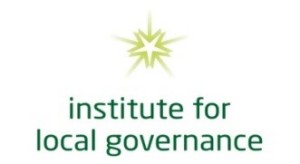What scope is there to encourage or invest in preventative initiatives in an age of austerity? ILG Seminar Series, Sunderland Glass Centre, held on Friday 20th May 
For many years, successive governments have considered how best to develop preventative measures to limit the cost of social problems further down the line through initiative such as place-based budgeting, public health initiatives, housing and homelessness interventions and so on.
Interventions can be costly in financial terms, but if the outcome of such initiatives is socially beneficial and economically viable in terms of future costs of service provision – then everyone wins. The problem is that preventative measures take time to show up clear benefits while national politicians can often be impatient for early results. So the importance of being able to explain potential benefits and provide early indicators of success remains important.
A further consideration, as public sector and third sector organisations face continued pressure on funding, is to ask what scope do they have to change the way they work individually, in partnership or in complementary ways in order to help different constituencies of individuals and communities to tackle the problems they face?
This seminar brought together policy makers, practitioners and academics from across a range of areas of work where preventative approaches have been established or are being trialled including homelessness, financial inclusion, mental health and wellbeing to debate these issues. Furthermore, the seminar addressed the issue of how local authorities can find out what local communities think the key issues and priorities are and then connect this intelligence with shared strategies to alleviate current or prevent future problems.
The seminar was opened by Councillor Celia Gofton, who holds the portfolio for Responsive Services and Customer Care at Sunderland City Council. The seminar was chaired by Professor John Mawson, Director of the ILG and speakers will include:
- Stephen Bell OBE, Chief Executive, Changing Lives, on tackling the consequences of homelessness for young people.
- Charlotte Burnham, Head of Scrutiny and Area Arrangements, Sunderland City Council, on keeping an ear to the ground on local community needs and priorities.
- Jane Hartley, Chief Executive, VONNE on the voluntary sector tackling health issues with a case study of the Ways to Wellness social investment bond.
- Dr Stephen MacDonald, Sunderland University, on tackling the impact of hidden disabilities on young people’s life chances.
- Graeme Oram, Chief Executive, Five Lamps Organisation, on initiatives to improve financial literacy and inclusion.
The Institute for Local Governance is a North East Research and Knowledge Exchange Partnership established in 2009 comprising the North East region’s Universities, Local Authorities, Police and Fire and Rescue Services. Further information about the content of the event can be obtained by contacting:- tony.chapman@durham.ac.uk or john.mawson@durham.ac.uk.
Presentations for each of the speakers can be found here: Charlotte Burnham[1] Graeme Oram Presentation[1] Jane Hartley[1] Stephen Macdonald Stephen Bell
